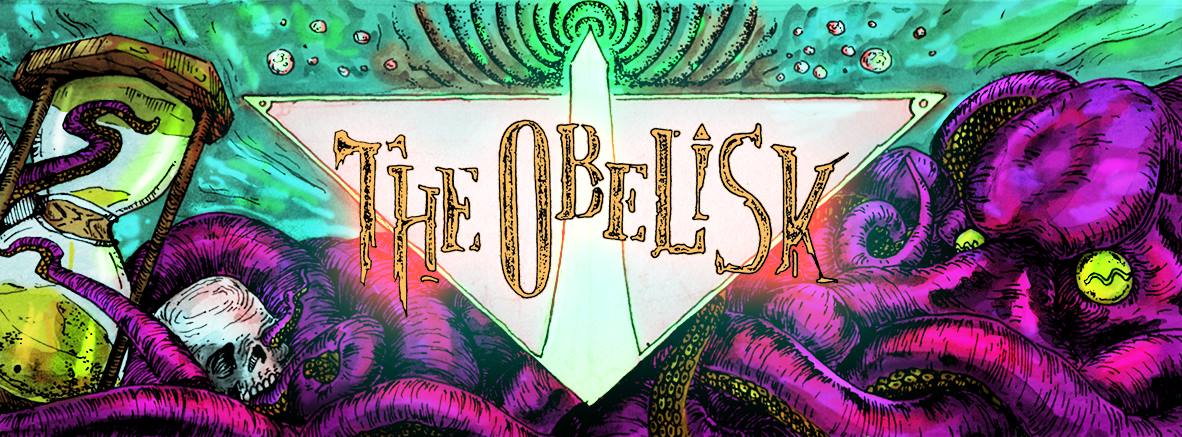The Philistines, The Backbone of Night: Hearts Like Candy (Plus Full Album Stream)
Posted in audiObelisk, Reviews on May 27th, 2016 by JJ KoczanAs fate would have it, today is the release date of The Philistines‘ full-length debut. Out on The Record Machine, the nine-track The Backbone of Night finds the Kansas City six-piece careening around a wide swath of heavy psychedelia, garage, desert and other assorted rocks. It’s the kind of record you might put on and wonder where the hell the band comes from, at times nodding toward the more cohesive end of West Coast bliss-outs, but also offering more driving moments like “A Twitch of the Death Nerve” or delving into classic-style, cane-sugar-coated pop on “A Heart Like Candy” such that each time the listener thinks they have The Backbone of Night figured out, The Philistines — the lineup of Kimmie Queen (vocals), Cody Wyoming (guitar/vocals), Michelle Bacon (bass/vocals), Steve Gardels (drums), Rod Peal (guitar) and Josh Mobley (keys) — hang a louie and the context for the record as a whole expands once again.
The key distinction to make here is that between amorphousness and nebulousness. It’s not that The Philistines are flailing, like they don’t know where they want their material to go. Granted, they might let it wander, as on jammed-out eight-minute centerpiece “The Accretion Disco,” but they always seem to have a direction at the root for each track and the flow of the album in general, which between the fact that there are six people in the band and that they work with a variety of acoustic and electric guitars, keyboard textures, vocal arrangements and so on, makes The Backbone of Night an all the more impressive first outing.
One of two similarly extended cuts along with the hypnotic dream-echo wash of the earlier “Radiation Drive” — credit to The Philistines for not ending the album with either of them — “The Accretion Disco” is obviously a focal point, but that consideration shouldn’t come at the expense of the other stylistic leaps the band makes, whether it’s from the Western garage psych of “Steep” to the shuffling “1971,” which is the shortest cut here at a buzzing 2:31 propelled by tambourine shake and an upbeat hook as it rushes into the more laid back “Radiation Drive,” an acoustic guitar figure adding earthy substance to what’s otherwise an ethereal rhythmic and melodic push outward. Only a single track separates “Radiation Drive” and “The Accretion Disco,” and that’s “A Twitch of the Death Nerve,” an also-under-three-minute, guitar-led, (relatively) straightforward heavy rocker that sets up a back and forth from the interstellar as though the band wanted to remind their listeners that, yes, there was still somebody steering the ship.
It’s a difficult swap to make, but The Philistines do it simply by doing it, and the fuzz-rocking “A Twitch of the Death Nerve” maintains an effects-prone undercurrent behind the lead guitar sizzle, so when “The Accretion Disco” kicks in, it’s not by any means out of place. Backwards swirl and cymbal wash tap ’60s psych and Beatlesian harmonies only reinforce the vibe, peaceful, ready for meditation of one sort or another. The already-noted jam portion is acoustic-led and takes flight after three minutes in, joined by electric leads after a few minutes as the song subtly heads back to the chorus, fading out quiet into wind/static and an emergent line of foreboding synth, from which “Arecibo” bursts to life.
To go with the album’s most insistent rhythm, strummed out on forward-in-the-mix (on purpose) acoustic guitar, “Arecibo” makes its mark with gorgeous duet vocal croons, and that would seem to be the element that most ties it to “A Heart Like Candy,” which is so unabashedly poppy it almost feels like a faster version of something that would’ve appeared on Twin Peaks — so dripping with sweetness it borders on unsettling, like something from a musical. Enough so that I Googled the title to see if it was a cover, but no, The Philistines seem to have just buried this milkshake-at-the-pharmacy-counter-turned-reverb-tripout in the second half of their album between “Arecibo” and the subsequent “Stygia,” which one might be tempted to call brooding but for the doubled-timed hi-hat keeping a somewhat frenetic sense of motion to it.
A shift back to something more straightforward is in itself jarring, one has to sort of peek around the corner of the song to make sure there isn’t something lurking, but “Stygia” winds up as the first of a two-part bookend with closer “Get Inside,” which follows, answering back to the heavy garage style that “Steep” and “1971” proffered while, particularly in the case of the finale, maintaining a psychedelic thrust as well. That capstone symmetry reinforces the notion that The Philistines have had an idea of what they wanted to do all long throughout The Backbone of Night, and given the significant amount of ground they cover, that’s reassuring. At least partially as a result of that stylistic breadth, I wouldn’t dare to make a prediction where The Philistines might go from here, but it seems to me that they have a foundation of psych, garage and desert-style rock that they can shape as they please, and the control they demonstrate over that process in these tracks bodes remarkably well.






